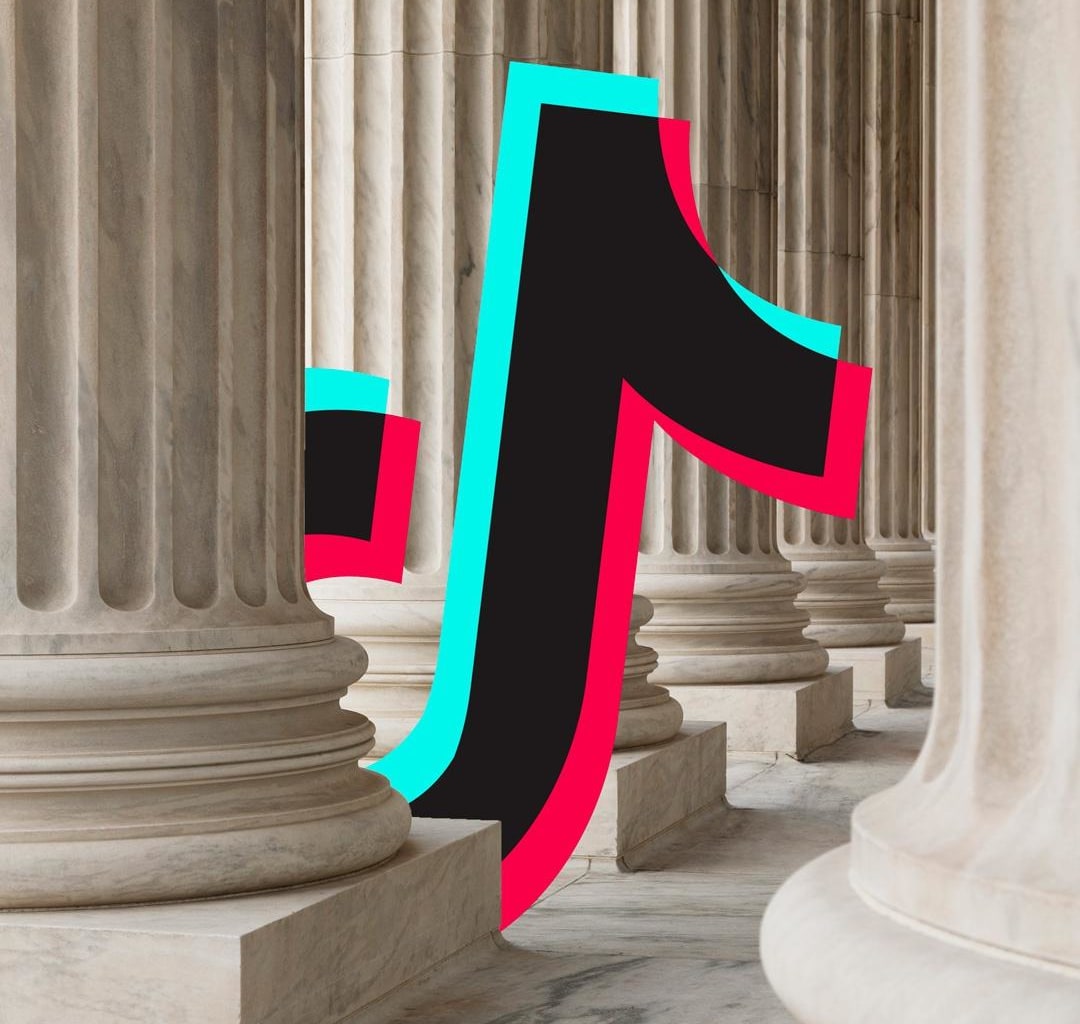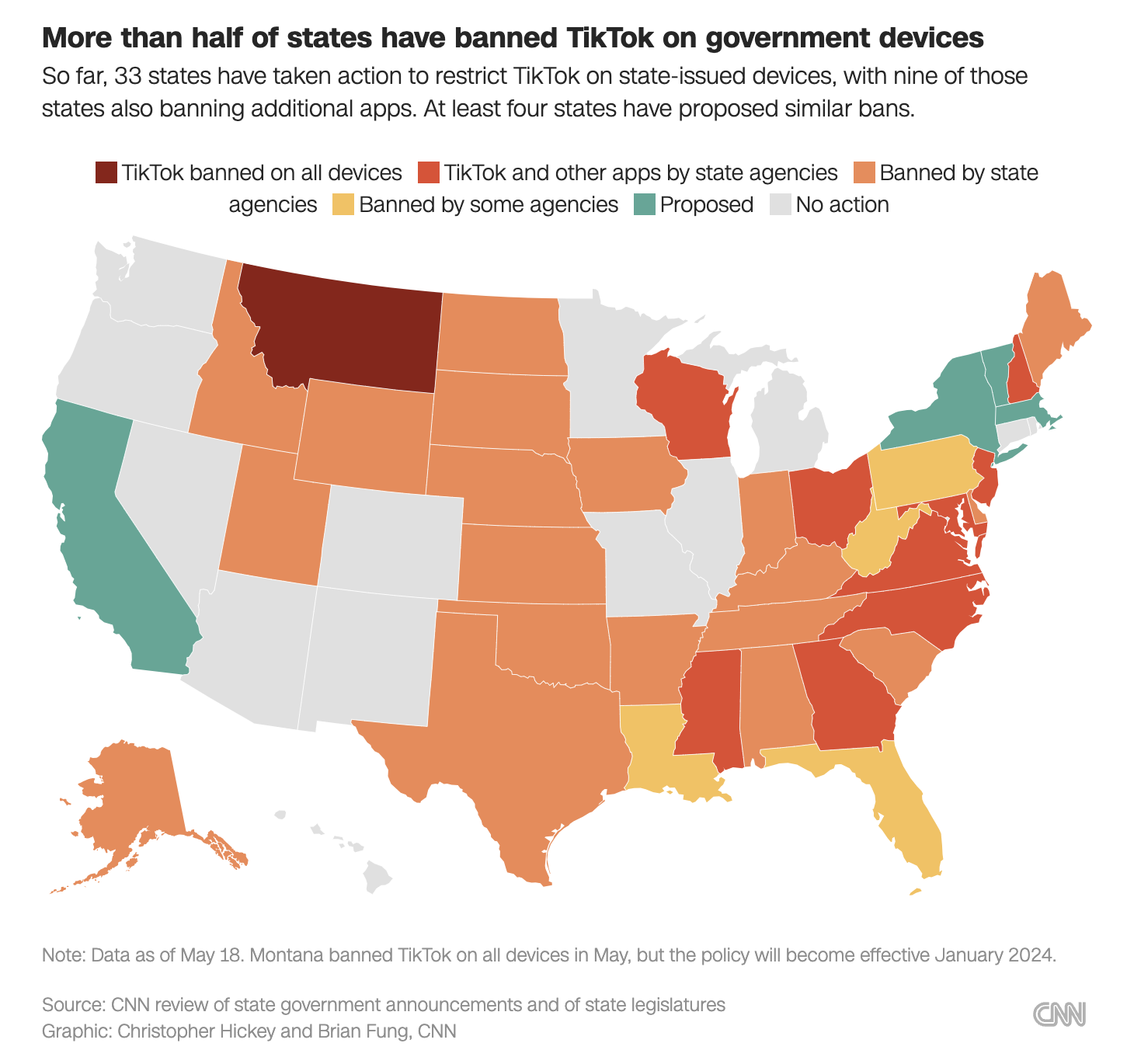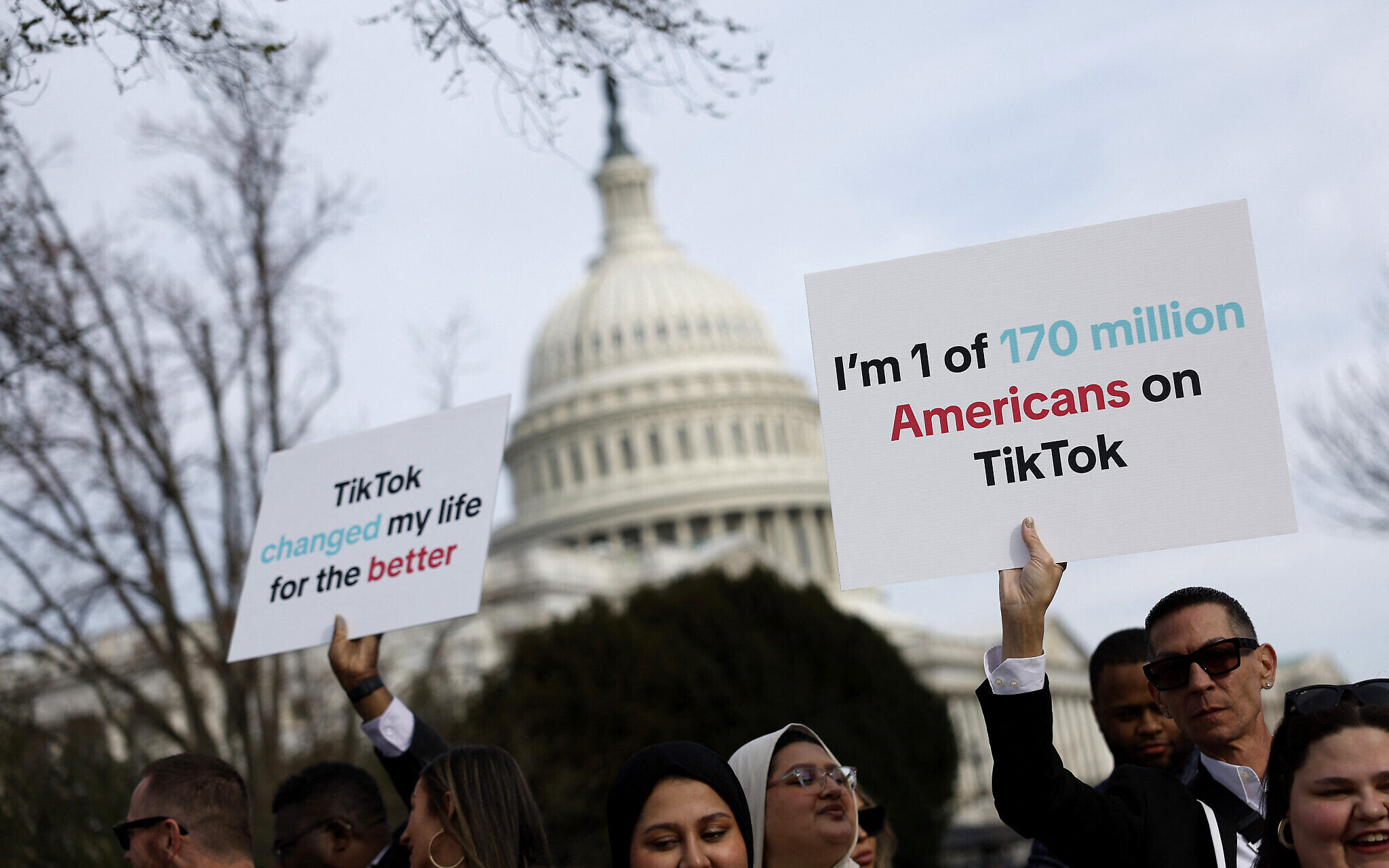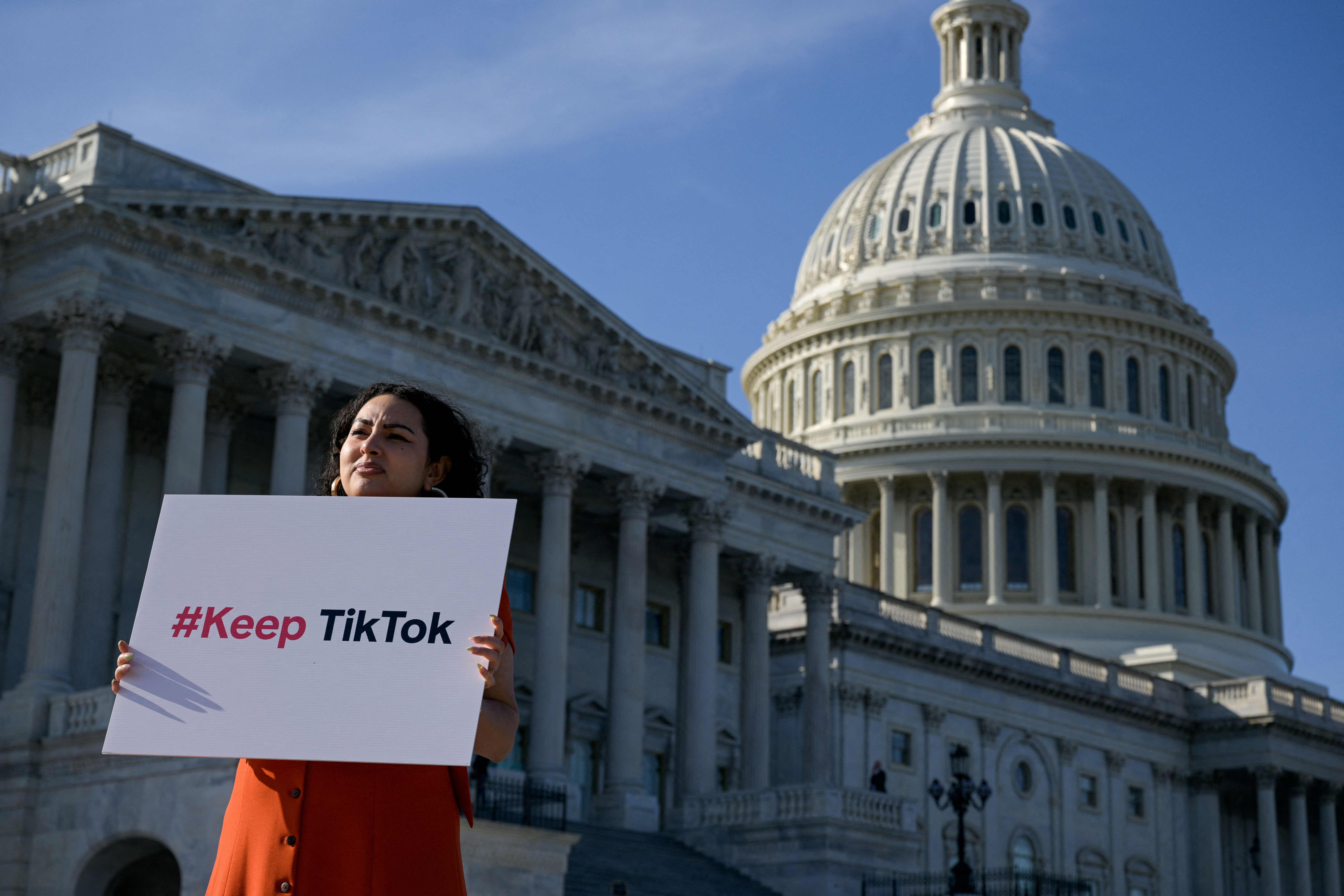TikTok's Ticking Clock: U.S. House Moves to Ban App, Sparking Debate and Controversy

In a significant move that could reshape the social media landscape, the U.S. House of Representatives has passed legislation that could lead to a ban on TikTok, the popular video-sharing app, due to its ties to Chinese parent company ByteDance. The bill, which has been strategically integrated into a broader foreign aid package, has garnered bipartisan support and is expected to face Senate consideration soon. As the clock ticks for TikTok, the potential ban has sparked intense debate and controversy, with the company and its supporters vowing to fight back against what they perceive as an infringement on free speech rights.

The Road to the TikTok Ban
The journey to the potential TikTok ban has been a long and winding one, marked by growing concerns over national security risks associated with the app's Chinese ownership. TikTok, which has amassed a staggering 170 million U.S. users, has faced scrutiny from both the Trump and Biden administrations, with the former attempting to force a sale of the app's U.S. operations to American companies in 2020.
The current legislation, passed by the House with a substantial majority of 360-58, sets forth a clear ultimatum for ByteDance: sell TikTok within 270 days, with a possible 90-day extension by the President, or face a ban from U.S. app stores. The inclusion of this provision in a larger foreign aid package, which includes support for Ukraine and Israel, has been a strategic move by lawmakers to ensure broad support and complicate the Senate's ability to oppose the bill without affecting critical foreign aid measures.

Bipartisan Support and National Security Concerns
One of the most striking aspects of the House's move to ban TikTok has been the bipartisan nature of the support for the legislation. In an era of intense political polarization, the fact that both Democrats and Republicans have come together to back the bill underscores the severity of the national security concerns surrounding TikTok's Chinese ownership.
At the heart of these concerns lies the fear that the Chinese government could use TikTok to access sensitive user data, engage in espionage, or manipulate public opinion. Despite TikTok's assurances that it operates independently from ByteDance and that U.S. user data is stored domestically, many lawmakers remain unconvinced, pointing to China's national intelligence laws that could compel the company to hand over data to the government.
TikTok's Resistance and Public Backlash
As the prospect of a TikTok ban looms, the company and its supporters have mounted a vigorous defense, arguing that the legislation infringes upon free speech rights and could have severe economic consequences. TikTok has launched a lobbying effort to sway public opinion and has indicated its intention to challenge the ban in court if it becomes law, citing First Amendment violations.

The potential ban has also sparked a backlash among TikTok's massive U.S. user base, many of whom rely on the platform for communication, entertainment, and even business. Content creators, who have built substantial followings and livelihoods on the app, have expressed fears about the impact of a ban on their careers and the broader creator economy.
Moreover, some experts have questioned the effectiveness of a TikTok ban in addressing national security concerns, arguing that it could set a dangerous precedent for government overreach and lead to a fragmented internet. They contend that a more targeted approach, such as strengthening data privacy regulations and increasing transparency around tech companies' data practices, could be a more effective solution.
The Economic Impact of a TikTok Ban
Beyond the social and political implications, the potential TikTok ban could have significant economic repercussions. The app has become a major player in the U.S. digital advertising market, with many businesses, particularly small and medium-sized enterprises, relying on TikTok to reach younger audiences and drive sales.
A ban on TikTok could lead to a substantial loss of revenue for these businesses, as well as for the countless content creators who have turned to the platform as a source of income. Additionally, the move could have a chilling effect on foreign investment in the U.S. tech sector, as other companies may fear similar actions based on their country of origin.

The Global Context and U.S.-China Tensions
The House's move to ban TikTok must also be viewed within the broader context of escalating tensions between the United States and China. The two superpowers have been engaged in a protracted trade war, with disputes over tariffs, intellectual property rights, and technology transfers spilling over into the realm of social media and digital platforms.
The TikTok ban, if enacted, could be seen as part of a larger pattern of U.S. efforts to curb China's technological influence and assert American dominance in the digital sphere. However, critics argue that such actions risk further fragmenting the global internet and could lead to retaliation from China, potentially harming U.S. companies operating in the Chinese market.

The Road Ahead and Potential Outcomes
As the TikTok ban legislation moves to the Senate for consideration, the future of the app in the United States hangs in the balance. Senate Majority Leader Chuck Schumer has expressed urgency in passing the foreign aid package, suggesting a high likelihood of the bill's approval. President Joe Biden has also indicated his support for the legislation, stating that he would sign it into law if it reaches his desk.
If the ban is enacted, TikTok will face a critical decision: sell its U.S. operations to an American company or risk being removed from U.S. app stores. The company has already explored potential buyers, with Microsoft and Oracle expressing interest in the past, but any sale would likely face intense scrutiny and could be complicated by the app's complex algorithmic systems and user data.
Should TikTok choose to fight the ban in court, the legal battle could be lengthy and contentious, with far-reaching implications for the future of free speech and government regulation of social media platforms. The outcome of such a case could set important precedents for how the U.S. balances national security concerns with individual rights in the digital age.

Conclusion: Clock is Ticking
The U.S. House's move to ban TikTok represents a watershed moment in the ongoing debate over the role of foreign-owned technology companies in the American market. As the bill moves through the legislative process, the future of TikTok and the broader U.S.-China relationship hangs in the balance.
While proponents of the ban argue that it is necessary to protect national security and safeguard American user data, critics contend that it infringes upon free speech rights and could have unintended economic consequences. As the clock ticks for TikTok, the world watches to see how this complex and controversial issue will be resolved, and what it will mean for the future of social media and global tech competition.











Member discussion